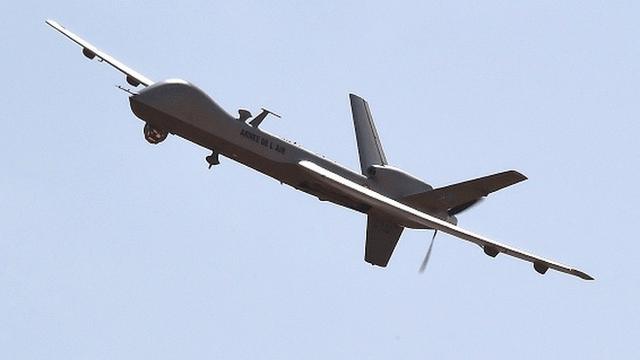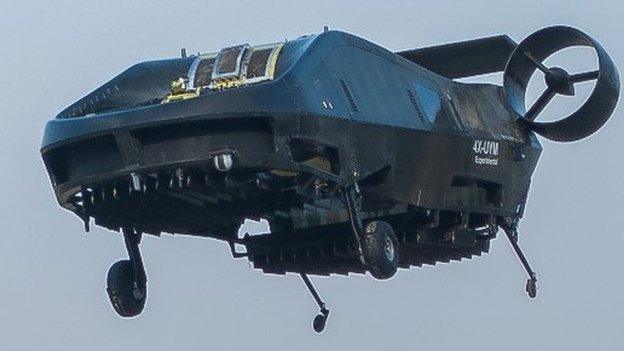Record number of US drone crashes
- Published

The US military's Reaper drone has had issues with a faulty starter generator
A record number of US Air Force drones crashed last year, according to an investigation by the Washington Post., external
It found 20 large drones had been destroyed or had sustained at least $2m in damage due to accidents last year.
The military's most advanced drone, the Reaper - used, including by the RAF, in the US-led military intervention against so-called Islamic State - was one of the worst affected.
Experts warned the impact of drone crashes was likely to get worse.
The Washington Post obtained accident investigation documents through a Freedom of Information request.
It revealed investigators had traced the problems experienced by the Reaper to a faulty starter generator.
Deputy chief of staff Lt Gen Robert P Otto told the newspaper the USAF was "looking closely to determine what is the core issue there".
More countries
Drone Wars UK, which records the crashes of large military drones, says most military drone crashes since 2007 have been in Afghanistan, with the second highest number in the US - where military drones are tested.
Iraq has the third highest number of crashes.
And since 2011, crashes have been reported in or off the coast of seven African countries as well as Lebanon, Syria and Yemen.
According to Chris Cole, of Drone Wars UK, said: "Large military drones crash so often that we can track the spreading use of these systems simply through looking at crash data.
"In 2007, only three countries saw crashes of these large military drones - Afghanistan, Iraq and the US.
"But by the end of 2014, this had risen to 23 countries, indicating an almost eightfold increase in their use in just a few years.
"Remotely controlled drones are inherently less safe than aircraft with a pilot on-board, and that is why we see so many crashes.
"While the military drone crashes that have happened so far tend to be in remote locations, if regulators give in to the increasing pressure to open up British and European airspace to these large drones, the impact is likely to be far greater."
- Published14 January 2016

- Published12 October 2015